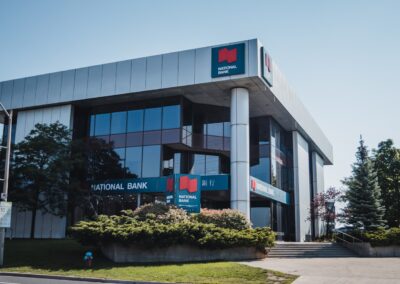Understanding the Regulatory Landscape in Saudi Arabia and UAE
Current Regulatory Challenges in Blockchain Finance
The integration of blockchain technology in finance is revolutionizing the financial industry, offering unprecedented efficiency, security, and transparency. However, this rapid advancement comes with significant regulatory challenges, particularly in regions like Saudi Arabia and the UAE. As these nations strive to become global fintech hubs, understanding and addressing these challenges is crucial for ensuring the growth and stability of the sector.
In Saudi Arabia, the Vision 2030 initiative has set the stage for a digital transformation, including the adoption of blockchain technology in finance. However, the regulatory environment is still evolving. The Saudi Arabian Monetary Authority (SAMA) and other regulatory bodies are working to establish frameworks that balance innovation with security and compliance. One of the primary challenges is creating regulations that are flexible enough to accommodate technological advancements while ensuring robust oversight to prevent fraud and financial crimes.
Similarly, the UAE is at the forefront of blockchain innovation, with Dubai positioning itself as a global leader in fintech. The Dubai Blockchain Strategy aims to make Dubai the first city fully powered by blockchain by 2021. Despite these ambitions, the regulatory landscape is complex and continuously evolving. The Dubai Financial Services Authority (DFSA) has implemented regulations to govern blockchain finance, but the challenge lies in maintaining a balance between promoting innovation and ensuring regulatory compliance. The rapid pace of technological change necessitates ongoing adjustments to regulatory frameworks to address emerging risks and opportunities.
Balancing Innovation and Regulation
One of the most significant challenges in blockchain finance is balancing the need for innovation with regulatory requirements. In Saudi Arabia and the UAE, regulatory bodies are tasked with fostering an environment that encourages technological advancement while protecting consumers and maintaining financial stability.
In Saudi Arabia, regulators are adopting a proactive approach to understanding blockchain technology and its implications for the financial sector. This involves collaborating with industry stakeholders, conducting pilot projects, and developing regulatory sandboxes that allow for controlled experimentation. These initiatives are designed to identify potential risks and develop appropriate regulatory responses. By engaging with the industry, regulators can create a regulatory framework that supports innovation while ensuring the integrity and stability of the financial system.
In the UAE, the focus is on creating a regulatory environment that is conducive to fintech innovation. The DFSA has introduced a comprehensive regulatory framework for blockchain finance, which includes guidelines for Initial Coin Offerings (ICOs), cryptocurrency exchanges, and other blockchain-based financial services. The challenge lies in ensuring that these regulations are flexible enough to accommodate the rapid pace of technological change. The UAE’s approach emphasizes collaboration between regulators, industry stakeholders, and international bodies to develop best practices and harmonize regulations across jurisdictions.
Future Regulatory Trends and Innovations
As blockchain technology continues to evolve, so too must the regulatory frameworks that govern its use in finance. In Saudi Arabia and the UAE, regulators are exploring innovative approaches to address the unique challenges posed by blockchain finance. These trends are likely to shape the future regulatory landscape and support the growth and stability of the sector.
One emerging trend is the use of technology to enhance regulatory oversight. In Saudi Arabia, regulators are leveraging artificial intelligence (AI) and machine learning to monitor blockchain transactions in real time. This approach allows for more effective detection of suspicious activities and ensures compliance with regulatory requirements. By integrating AI with blockchain, regulators can enhance their ability to identify and mitigate risks, thereby supporting the growth of the blockchain finance sector.
In the UAE, the adoption of blockchain technology itself is being explored as a tool for regulatory compliance. The DFSA is investigating the use of blockchain for regulatory reporting and audit trails. By creating immutable records of financial transactions, blockchain can provide regulators with transparent and tamper-proof data, simplifying the compliance process and reducing the risk of fraud. This innovative approach not only enhances regulatory oversight but also streamlines compliance for financial institutions, supporting the growth of the blockchain finance sector.
Leadership and Management in Navigating Regulatory Challenges
Strategic Leadership for Regulatory Compliance
Effective leadership and management are crucial for navigating the regulatory challenges in blockchain finance. In Saudi Arabia and the UAE, business executives and managers play a vital role in ensuring that their organizations comply with regulatory requirements while leveraging the benefits of blockchain technology.
Leadership in this context involves understanding the regulatory landscape and strategically integrating compliance into business operations. Executives must prioritize regulatory compliance as a key component of their business strategy, ensuring that all technological investments align with regulatory requirements. In Saudi Arabia, leaders are focusing on creating compliance frameworks that support the Vision 2030 initiative, promoting financial inclusion and economic diversification.
In the UAE, effective project management is essential for implementing blockchain solutions that comply with regulatory requirements. This involves setting clear compliance objectives, allocating resources efficiently, and continuously monitoring regulatory developments. Managers must be agile and adaptive, ready to respond to regulatory changes and incorporate them into their business operations. By fostering a culture of compliance and innovation, they can ensure that their organizations remain competitive in the rapidly evolving financial landscape.
Building a Skilled Workforce for Regulatory Compliance
As regulatory challenges in blockchain finance become more complex, there is a growing need for a skilled workforce capable of navigating these challenges. In Saudi Arabia and the UAE, financial institutions are investing in training and development programs to equip their employees with the necessary skills and knowledge.
In Saudi Arabia, the focus is on creating a workforce that understands both blockchain technology and regulatory compliance. Banks and financial institutions are collaborating with educational institutions and technology providers to offer specialized training programs. These initiatives are helping to bridge the skills gap and prepare the workforce for the regulatory challenges of the future.
In the UAE, financial institutions are adopting a similar approach, emphasizing the importance of continuous learning and development. By fostering a culture of compliance and providing opportunities for skill enhancement, they are ensuring that their employees can effectively navigate the regulatory landscape. This proactive approach to workforce development is crucial for maintaining competitiveness and achieving long-term success in the rapidly evolving financial sector.
The Future Outlook for Regulatory Challenges in Blockchain Finance
The future of regulatory challenges in blockchain finance is complex and dynamic, with continuous advancements poised to shape the industry. As blockchain technology becomes more sophisticated, the regulatory frameworks governing its use must evolve to address emerging risks and opportunities.
In conclusion, regulatory challenges in blockchain finance are driving significant changes in the financial industry. By leveraging advanced technologies such as blockchain and AI, Saudi Arabia and the UAE are positioning themselves as leaders in the global financial ecosystem. Effective leadership and project management are crucial for navigating this regulatory landscape, ensuring that technological investments align with organizational goals and regulatory requirements. As the future unfolds, the potential for further innovation and success in blockchain finance remains boundless.
—
#BlockchainFinance, #RegulatoryChallenges, #SaudiArabia, #UAE, #Fintech, #AIinFinance, #Metaverse, #GenerativeAI, #BusinessSuccess, #Leadership, #ProjectManagement























